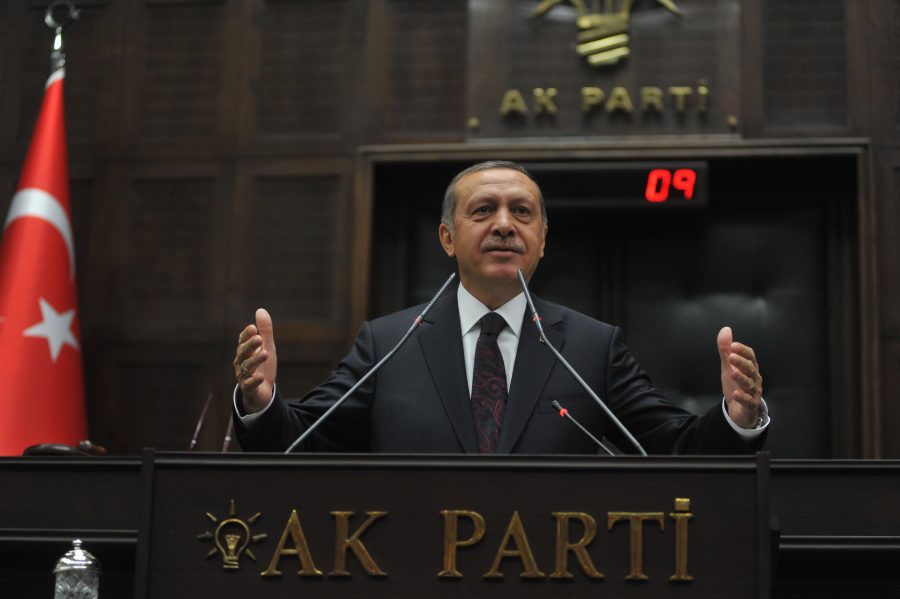Prime Minister Erdogan pledges a war against his rivals he blames for illegal wiretaps targeting his allies during a meeting with Turkish Parliament. (Baris Deniz/Depo Photos/ABACAPRESS.COM)
On March 20, 2014, the residents of Turkey woke up to find their beloved social media site Twitter inaccessible. CNN reports that prior to the ban, recordings of telephone conversations showing widespread corruption in the government and Prime Minister Recep Tayyip Erdogan’s administration were leaked onto Twitter. Many believe that the ban was politically motivated, but government officials claim the social media site was blocked after citizens complained of breaches in privacy. Immediately following the ban, citizens of Turkey found ways around the ban through proxy servers and other forms of circumvention. Quickly, #TwitterisblockedinTurkey and #DictatorErdogan began trending worldwide on Twitter. A few days after the incident, according to Cnet.com, a YouTube video surfaced of an audio recording of Turkish government officials discussing how to justify air strikes against Syria. Turkey then banned access to YouTube.
It is quite clear that the ban on Twitter was the government’s response to the leaked telephone recordings and is a violation of free speech and individual rights. Twitter is now used as a news source by many, and it is without a doubt one of the fastest forms of news coverage. As a Twitter user, when breaking news occurs, Twitter is always the first source I go to for information. Other online news sites may take hours before they release an article, but Twitter users can report instantaneously. With this in mind, Turkey banned Twitter as a way to cut off communication among the Turkish population amid political corruption and upcoming elections. Without Twitter, information does not spread nearly as quickly, giving time for politicians to spin a different story. By cutting off Twitter, Prime Minister Erdogan has at least stalled Turkey’s impending political storm. The bottom line is that Turkey’s ban on Twitter is a violation of free speech and should be revoked.
Prime Minister Erdogan seems to be getting desperate in his attempts to calm protestors. CNN reports that he has already restricted the flow of information through traditional forms of news such as newspapers and television. The internet, which wields the power to start revolutions, is now one of his pressing concerns.
Twitter is unique because of its timing and preciseness, unlike Facebook and other social media sites. Every tweet must be concisely crafted as users only have 140 characters to convey a point to the audience. Twitter also happens to be one of the fastest growing social media sites. According to Quartz.com, Twitter gained approximately 100 million users in about one year. All this attention Twitter has gained only adds to the potential damage it could do.
Two weeks following the ban, the Turkish court ruled that the government could not ban Twitter, and that this ban was a violation of the freedom of speech and expression. So it seems the internet has won this time, at least for now. Prime Minister Erdogan is still fighting the ruling. Cnet.com reports that he has vowed to wipe out the site after the political turmoil it has caused him.
Online social media has become a source of reliable and immediate news for the general population. Governments are now starting to realize how much of a threat social media can be. Many have begun to censor social media sites in order to avoid a situation like Turkey’s; but it is vital for these social media sites to stay uncensored in order to voice the opinions of the masses. It seems that social media sites have taken on another identity of not only quickly sharing information, but providing insightful opinions.
Written by TYLER DOAN
Staff Writer











forums.Emulator-zone.com • May 18, 2014 at 3:22 pm
Great post. I was checking continuously this blog and I’m impressed!
Extremely helpful info particularly the last part
🙂 I care for such information a lot. I was looking for this certain info for a long time.
Thank you and good luck.